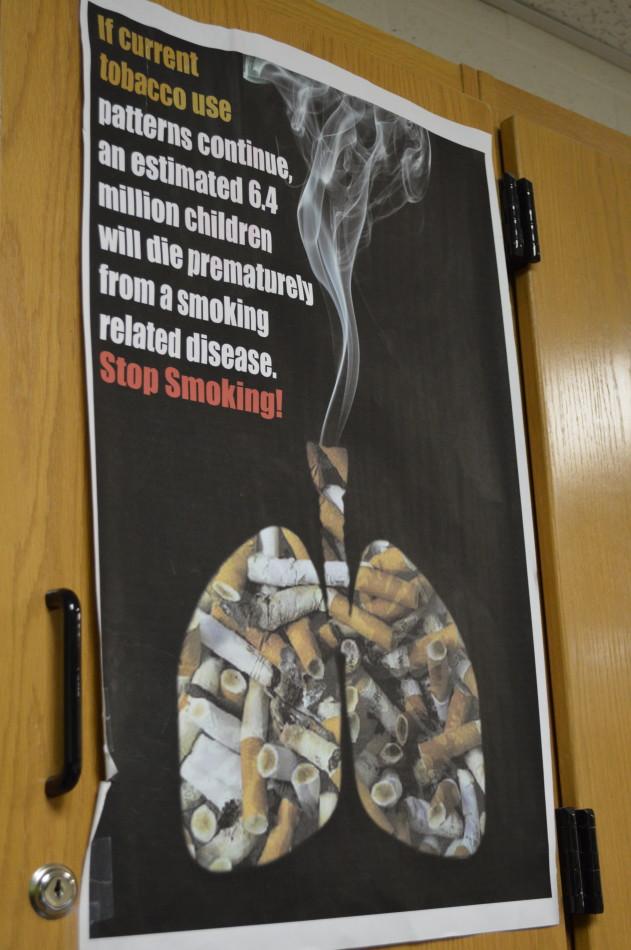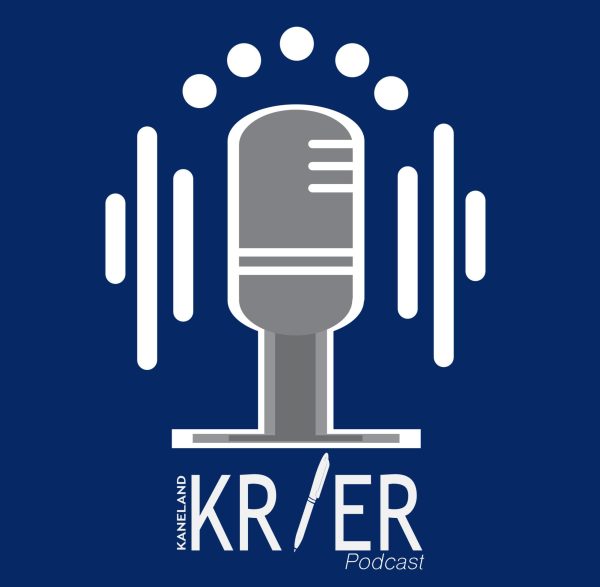Dangerous Drugs hitting the younger generation
Photo By Gabby Cano
Smoking can cause many life-threatening diseases in the future.
Children grow up with older individuals warning them of the harm that drugs cause, yet they also grow up in a society that promotes drug-related movies, television shows and music. So as these children begin to age, curiousity gets the best of many and drugs become a part of their life.
Drugs are extremely harmful to younger teens because their brains are still developing.
According to a recent study on Hazelden, nearly one in five teens in grades 7-12 (19 percent, or 4.5 million) say they’ve taken prescription painkillers. These painkillers include Vicodin or OxyContin. One in 10 (10 percent, or 2.4 million) admit to having abused cough medicine.
“Drugs can have very negative influences on a person’s life,” freshman Jake Gallagher said.
These statistics manage to increase as younger generations become influenced by media or peers to experiment with drugs.
According to the Federal Substance Abuse and Mental Health Services Administration, prescription drugs are the most commonly abused drugs by teenagers followed after marijuana.
“Marijuana is a common drug that the teens use,” Gallagher said.
Prescription drug use is supposed to be the next big issue. According to health teacher Kristyn Crawford, these types of drugs are popular because teens have the ability to simply dig through their medicine cabinets at home instead of buying drugs from the streets. The easy access causes more and more teens to give prescription drugs a try.
Researchers at the University of Colorado Denver analyzed data from the National Survey on Drug Use and Health. They found Americans ages 15-27 are driving the prescription drug abuse epidemic.
In a news release from the University of Colorado Denver, lead researcher, Richard Miech, Ph.D., brought up the threat prescription drugs pose to the youth.
“Prescription drug use is the next big epidemic. Everyone in this field has recognized that there is a big increase in the abuse of nonmedical analgesics but our study shows that it is accelerating among today’s generation of adolescents,” Miech said in a press release.
Along with prescription drugs, marijuana is popular among the youth. According to the Monitoring the Future (MTF) in their 2013 report, 7.0 percent of eighth graders, 18.0 percent of tenth graders and 22.7 percent of twelfth graders used marijuana in the past month.
Drugs can become addicting. Research conducted by the Palo Alto Medical Foundation shows that drugs will input a chemical into a person’s brain that will cause a feeling of euphoria. When a person takes more drugs, their brain will receive an overwhelming amount of this “happy chemical” that it will start to make less of it.
Without drugs a person will began to feel unhappy or depressed and will start to depend on drugs to feel happy. After time, low-scale drugs such as marijuana will not be enough and that is when a person will turn to more dangerous drugs like cocaine and crystal meth.
“Drugs can appear to initially have positive effects, lifting your mood, relaxing you or even giving you more energy. However, they can also have negative impacts on your mental, physical and social health. Many kids believe that they can manage the effects of the drugs and deal with the impact it has on their lives,” Crawford said.
Any type of drug addiction is dangerous. Warning signs to look for include: change in personality, mood swings, change in friends, decline in grades, absences in school, depression, etc.
“Drugs are chemicals, depending on the drug will depend on the effect on the body. Some drugs can even change a person’s body and brain in ways that last long after the person has stopped taking drugs. Some behavorial problems associated with drug use includes parnoia, aggressiveness, impaired judgment, impulsiveness and loss of self control,” Crawford said.
The effects drugs can have on a person prove to be harmful both short and long term. Teens gravitate towards drugs thinking it’ll be an exciting experience.
“I think drugs are becoming popular with younger teens because they’re not fully aware of the harmful things they can do to your body,” Gallagher said.

Grade: 12
Hobbies: Eating Chipotle, Watching Netflix, Shopping
Extra Curricular Activities: Soccer, NHS and student council






